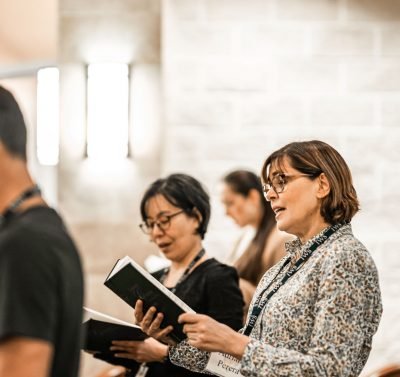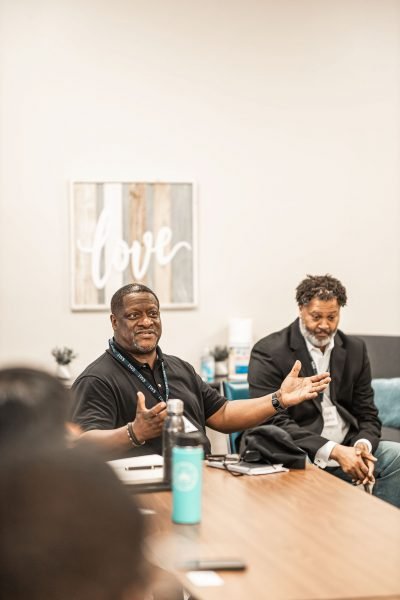
The Doctor of Worship Studies degree is a unique and ground-breaking program with its entire curriculum formed around worship studies. It is designed for church leaders including worship leaders, pastors, music ministers, parish musicians, professors, worship teachers, liturgists, artists, and missionaries.
Every course deals specifically with worship, yet integrates the classic theological disciplines as well. Students who graduate from this course of study will be able to reflect on worship through the disciplines of Scripture, history, theology, and cultural analysis.
All studies are geared toward the mission of the church to give witness to God’s redeeming work in the world and to fulfill the mandate of the Great Commission.

The purpose of the doctorate program is not only to educate but to encourage spiritual formation to prepare the student to minister to both the minds and the hearts of God’s people. The Institute for Worship Studies will help you: